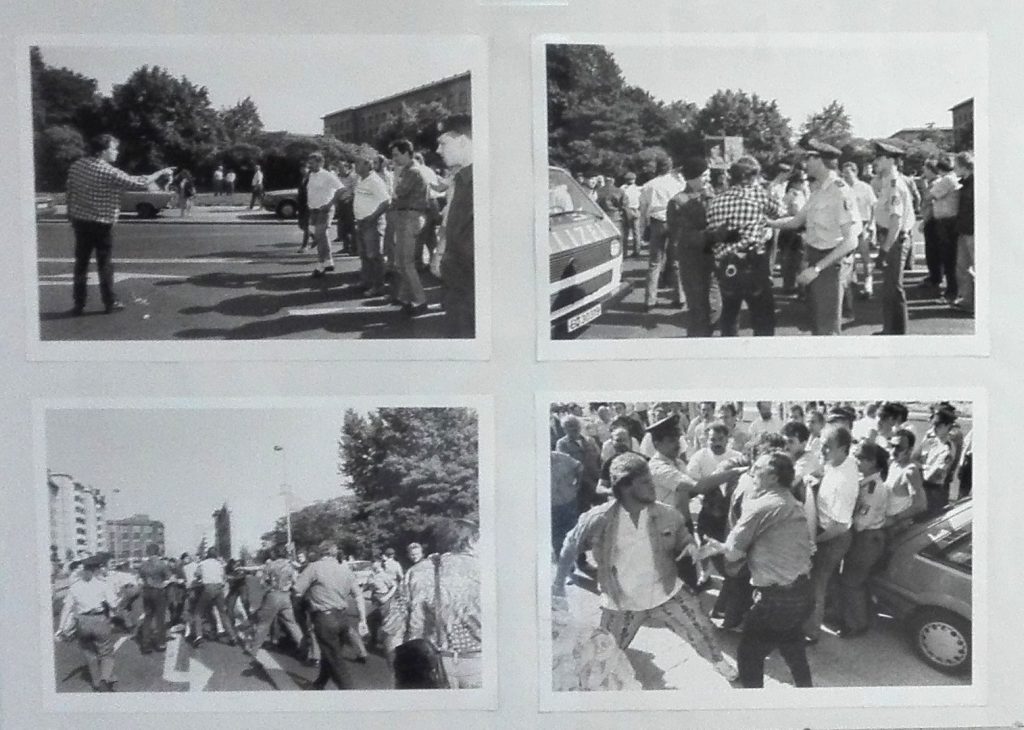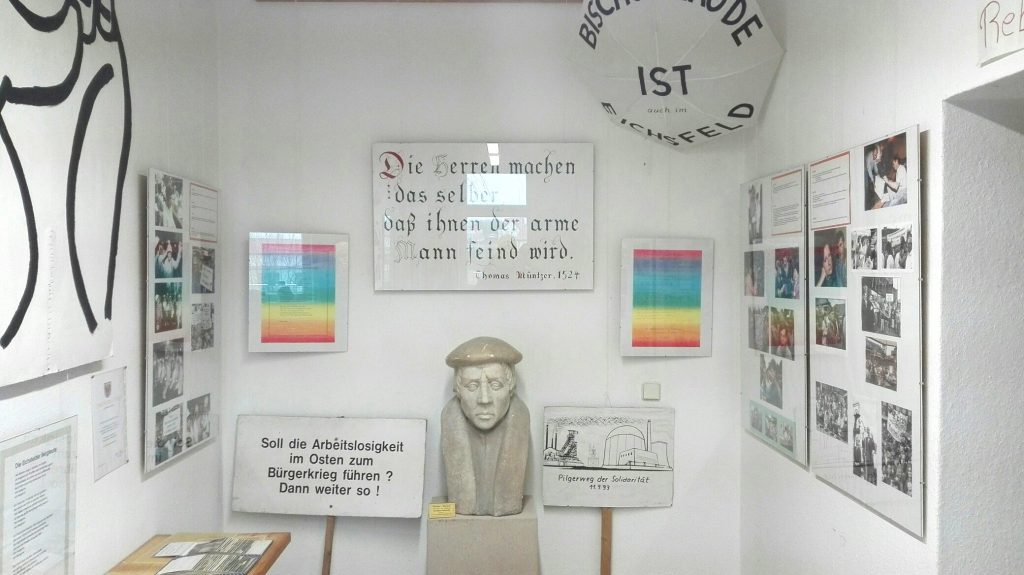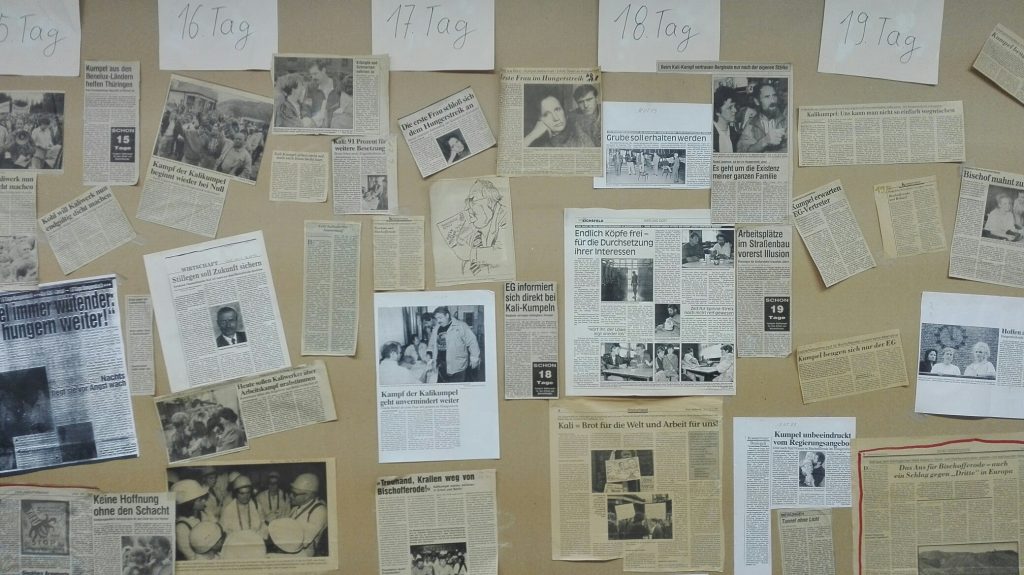Facebook and Real Life curated an interesting week for me, this past week. Kind of sad week, but maybe that is also the fault of the grey and the cold that sits unrelenting on this city and does not lift. So I have been working on a rewrite of the first chapter of my thesis/upcoming book, and it starts with a kind of quick run through of the rise and failure of the revolution of 89 and then an even more cursory run through of the rise and failure of state socialism in the SU and the GDR and a tentative connecting up of the two.
And then Tuesday was the screening of Heise’s Stau at HAU, as part of the Heiner Müller programme there (http://www.hebbel-am-ufer.de/programm/spielplan/zeitschleifen-filmabend-mit-thomas-heise/2312/). Watching “Stau” is always a strange experience for me (and I have watched it many times), the tenderness Heise feels and makes one feel for his subjects is something so heavy, so thorny, and so precarious, and I wish I shared Heise’s confidence in standing by it, publicly. Luckily (maybe), it is something that dissipates in Heise’s later films about the same protagonists, and as they settle into more solidly ideologically fortified versions of themselves our sympathy dwindles to nothing and things return to how they should rightfully be and feel. Heise screens “The Battle of Algiers” after, and then tries to figure out what that juxtaposition might mean with a panel including himself, Boris Buden and post-colonial curator Marie-Hélène Gutberlet, who in the process communicate nothing, except for a continuing failure of the two experiences of being leftwing (East, West, with Yugoslavia stuck somewhere in between) to communicate – seemingly mutually undisturbed by each other (except in confrontations, such as the one performed, for the one hundredth time, during this panel at the HAU) in 26 years.
Later this week, a German friend posts (thanks Christiane K.) a Guardian article that rereads Trump’s popularity as not so much an expression of irrational xenophobia, but as a rational (?) working-class response to the precarisation of the american blue collar worker through trade policies supported by republican and democrat elites alike (http://www.theguardian.com/commentisfree/2016/mar/07/donald-trump-why-americans-support) and on a similar note: http://www.theguardian.com/us-news/2016/mar/13/bernie-sanders-supporters-consider-donald-trump-no-hillary-clinton, and if we agree, I wonder if we would extend such a generous interpretation to the Pegida supporters in Saxony (a survey I saw somewhere a while ago seemed to suggest that motivations here are far reaching, too, and economic fears often as frequent as or more frequent than xenophobic ones).
Today then photos of a neo-fascist march (http://m.welt.de/politik/deutschland/article153229244/3000-Rechte-marschieren-durchs-Regierungsviertel.html) that passed practically unhindered through the center for Berlin, and apart from the German and Reichskriegs-flags there are the Flags of East German cities (Halle) and provinces (Saxony, Brandenburg), and I am disturbed further by one banner that reads “Wir lassen und nicht BRD-igen”. This appears like a direct quote from the demonstrations of 1989/90, only turned on its head. In the winter of 1990 this slogan was used by the anti-nationalist left, that is, the parts of the groupings that first took to the streets for a reformed GDR, in the early demonstrations, when the “We are the people” that was devoid – by which I mean, utterly devoid – of nationalist connotations, staked a radical claim to political sovereignty by the people-as-demos as a non-identitarian and all inclusive collectivity (Ranciere later used this historical example to illustrate his definition of the political as disruption vs the policing of settled identities).
I wonder, with some discomfort, if what I see in those pictures from yesterday, and what we see in those pictures from Clausnitz and Bautzen etc. is really the failure of the revolution of 1989 finally catching up with the rest of us (or should I say, them?), 26 years after it failed for those of us who carried (from the moment we carried) the “Wir lassen uns nicht BRDigen” banners against and increasingly at the margins of a growing mass of (yes, generally more working class) protesters, who no longer felt represented by the citizens movements and their agenda of a renewed socialist state and, accordingly, pinned their hopes on the nationalist pro-reunification path.
Then there was this article, that someone posted today, (https://krautreporter.de/1376–warum-ich-aus-sachsen-weggezogen-bin) and it is sobering, too, and hints in a maybe similar direction in the last paragraphs, but there are no answers here, and neither do I feel that any will be forthcoming any time soon.
(originally posted on facebook, 12.03.2016)


